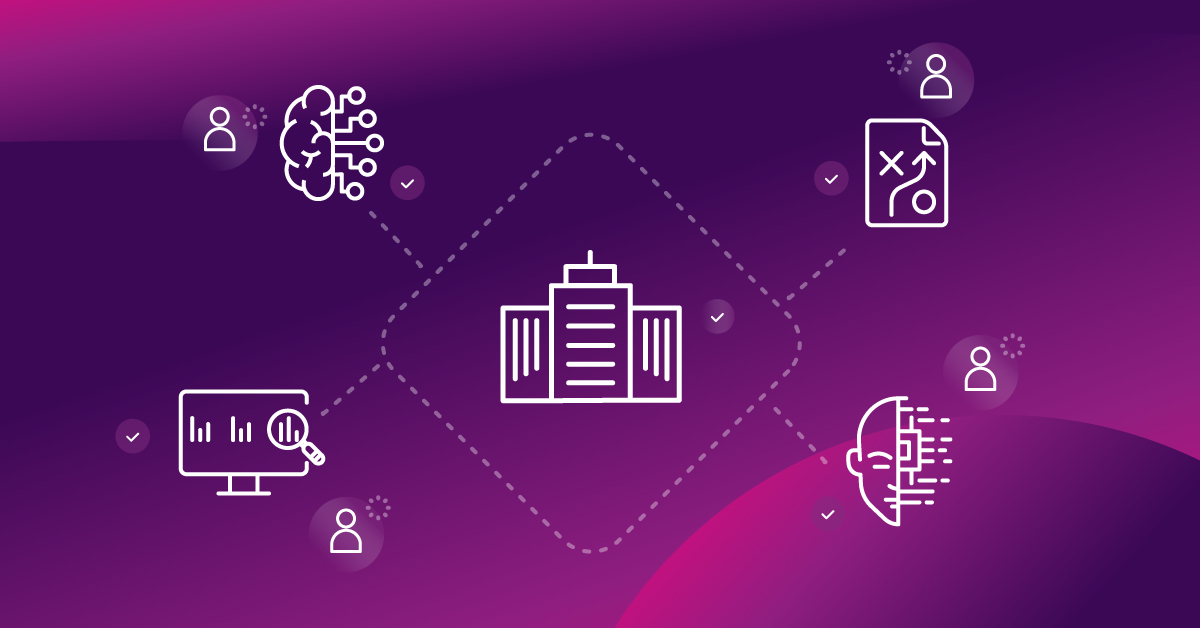The experience of work & the promise of data and AI

The data landscape is experiencing an unprecedented wave of investment. Data and analytics are a vital part of digital transformation, and leading companies are set to pump over $70 billion into their data capabilities by 2023.
There is, however, a disconnect between intent and impact, which can be overcome but it takes a different kind of investment. Financial investment alone isn’t a panacea. Rather, delivering meaningful gains requires investment in people and processes and that means investing in organizational culture.
We’ve previously explored the importance of data culture and understanding an organisation’s culture as a ‘big picture’ concept is incredibly important, but it is also helpful to unpack what “culture” really means, and how it can be enabled by focusing on the experience of work.
Mind the gap
Without a way to overcome the gap between intent and impact, vast volumes of investment flowing into data and technology will be wasted.
Typically, this isn’t a knowledge problem – it’s a failure of execution. A firm might have a data strategy in place, complete with data literacy training, data-enabled advocates embedded across the organisation, and increased governance. But after all the education and training is delivered, not much changes. Or, as often can happen, beyond the initial spike that immediately follows the education training, or the seminar or the internal brand push by the CDO old habits begin to show themselves and the steps forward gained are lost.
To solve this, we need to focus on organisational culture. Technology is proliferating rapidly, but organisations have been slow to adapt their cultures and working practices to them. To paraphrase the business management expert, Gary Hamel “We have 21st-century technology built upon 20th-century management processes all built on top of 19th-century management principles.” Current technology and the widespread digital transformation landscape often renders ‘the way we do things’ obsolete in the context of work as it is today.
Ultimately, culture isn’t just what organisations say about themselves – it’s what they do. It can only be defined through the observable behaviours of its members. Without re-evaluating and reforming underlying principles of work, organisations cannot hope to enjoy the benefits of data.
A paradigm shift
Ways of working need to change rapidly in order to support a new paradigm.
Of course, we’ve seen this before. The arrival of the World Wide Web in the business context in the 1990s resulted in profound changes, first at the hardware level (from floppy disks to CD-ROMs for file storage for instance), and then at the software level, too. This was a time of enormous change, and work hasn’t been the same since.
Changing behaviours and ways of working alongside rapid advancements in technology yield results. For instance, when Henry Ford introduced mass production to automobile manufacturing, the experience of work changed irrevocably. The same too when McDonald’s systemised the making of hamburgers. These paradigm shifts ushered in new behaviours that drove rapid commercial growth.
Now big advancements in AI and machine learning mean we are in a similar situation and modern businesses, especially ones which we might term ‘legacy businesses’ can take advantage if they are strategic in the way in which AI and ML are implemented. You can’t expect a person – however smart and conscientious – to interact with a new analytics dashboard, or elicit insights from with data, without helping them to understand the benefits and acclimate to new modes of working. You simply won’t get the value you are seeking from data if you don’t change behaviours through a committed reappraisal of the experience of work.
Transforming culture
To change culture, we need to focus on people’s behaviour, considering how people behave in relation to data and give the data,(or the analytics tool, the algorithm etc.) meaning in the context of the way people perform their roles. Ultimately mindsets and behaviours fuel transformation. Organisations need to concretely focus on scaling habits that matter:
- Start with the current and transformational context – What are the behaviours today? How do these behaviours impact profit and loss? What is the vision for change?
- Habits and mindsets we want – What are the desired behaviours? How do these behaviours drive increased profit and loss / workforce performance and fuel transformation?
- For each role/persona – What do the desired behaviours look like per role/persona? How will this behaviour show up in the business and customer service?
- Which looks like – How can each behaviour be measured/observed? How might we experiment, pilot and iterate before scaling?
- And achieves – What is the estimated benefit driven by the uplift of this mindset/ behaviour? How will we prove a differential during experiments and pilots?
- Through interventions that work – What inspires change in mindsets and behaviours (‘fuel’)? What are the blockers to change (‘friction’)? How can we scale interventions for a whole workforce?
Boiling all this down, you need to ask what you can do as a business to make it as easy as possible for your people to form positive relationships with new tools and processes, enabling them to feel more at home in their working environment and embrace change.
Our passion
The actual experience of work – be it physical or virtual – is critical for businesses seeking to scale new heights with data.
At Mudano, we are passionate about helping enterprise organisations to bridge the gap between intent and impact with data culture – the integration of data, insight and the experience of work. We do this by focusing on the values, attitudes and behaviours of individuals in their daily practice, empowering them to better utilise data and insight to solve real business problems